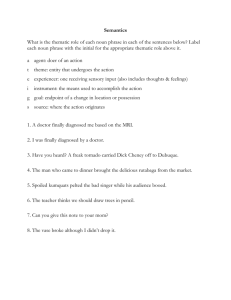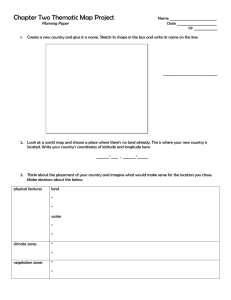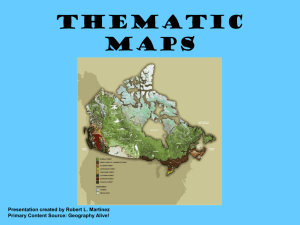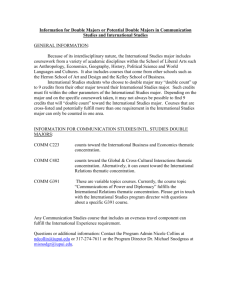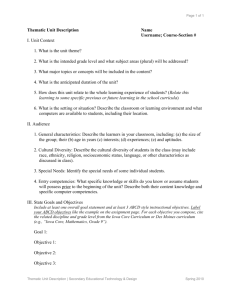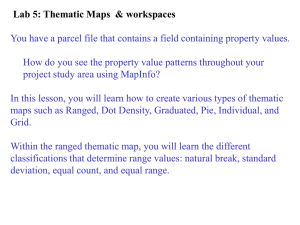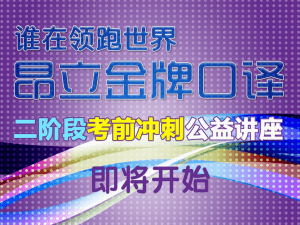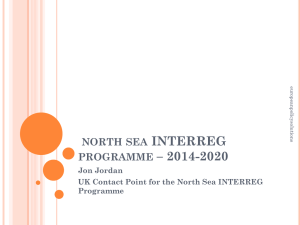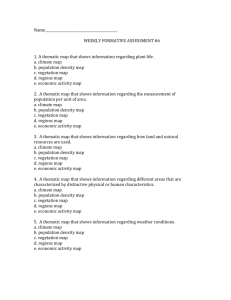MIT Curriculum Development Project: Collaborative Unit Planning
advertisement
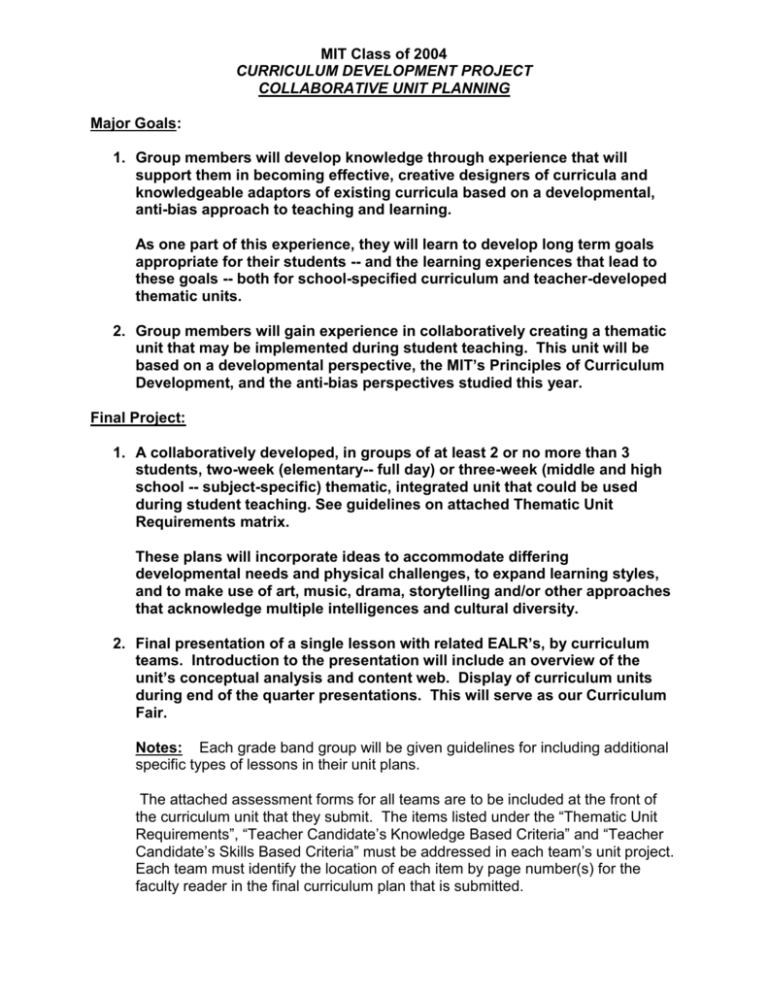
MIT Class of 2004 CURRICULUM DEVELOPMENT PROJECT COLLABORATIVE UNIT PLANNING Major Goals: 1. Group members will develop knowledge through experience that will support them in becoming effective, creative designers of curricula and knowledgeable adaptors of existing curricula based on a developmental, anti-bias approach to teaching and learning. As one part of this experience, they will learn to develop long term goals appropriate for their students -- and the learning experiences that lead to these goals -- both for school-specified curriculum and teacher-developed thematic units. 2. Group members will gain experience in collaboratively creating a thematic unit that may be implemented during student teaching. This unit will be based on a developmental perspective, the MIT’s Principles of Curriculum Development, and the anti-bias perspectives studied this year. Final Project: 1. A collaboratively developed, in groups of at least 2 or no more than 3 students, two-week (elementary-- full day) or three-week (middle and high school -- subject-specific) thematic, integrated unit that could be used during student teaching. See guidelines on attached Thematic Unit Requirements matrix. These plans will incorporate ideas to accommodate differing developmental needs and physical challenges, to expand learning styles, and to make use of art, music, drama, storytelling and/or other approaches that acknowledge multiple intelligences and cultural diversity. 2. Final presentation of a single lesson with related EALR’s, by curriculum teams. Introduction to the presentation will include an overview of the unit’s conceptual analysis and content web. Display of curriculum units during end of the quarter presentations. This will serve as our Curriculum Fair. Notes: Each grade band group will be given guidelines for including additional specific types of lessons in their unit plans. The attached assessment forms for all teams are to be included at the front of the curriculum unit that they submit. The items listed under the “Thematic Unit Requirements”, “Teacher Candidate’s Knowledge Based Criteria” and “Teacher Candidate’s Skills Based Criteria” must be addressed in each team’s unit project. Each team must identify the location of each item by page number(s) for the faculty reader in the final curriculum plan that is submitted. Criteria for Assessing Curriculum Unit Plan Thematic Unit Requirements (These are the components that need to be in your unit.) Thematic Unit Includes Statement of purpose and major goals Descriptive sketch of anticipated characteristics of students with whom you will be working -- age range, probable developmental level, socioeconomic and ethnic groups, differing developmental and physical needs Brief description of classroom management plan(s) or approaches you intend to use Conceptual network web or diagram (see attached Sample) Theme and content possibilities web or diagram (see attached Sample) Web or statement of examples of students' likely pre-existing concepts about what you plan to explore Daily two-week (or three-week) plan of goals (include EALR’s), objectives, procedures, materials, teaching strategies you plan on using e.g. small groups, individual research, learning stations, teacher presentation, experiment, hands-on exploration, etc. Sample of reading lesson appropriate to Location in Curriculum Unit (page #'s) Faculty Comments grade level and content area requirements.* Sample of writing lesson appropriate to your grade level and content area.* Sample of lesson using learning stations Sample of lesson designed as a workshop Sample of assignment using Internet sites Example of at least one pre-assessment, formative (i.e. ongoing) and summative assessment (i.e. post), including a rubric An annotated bibliography of trade books to read with unit An annotated bibliography of Internet sites appropriate for the unit * For middle and highschool students in all content areas, each teacher candidate on the team must develop a reading and writing lesson individually. The team can, however, collaborate on their design of the rest of the unit. Criteria for Assessing Curriculum Unit Plan Teacher Candidates Knowledge Base (i.e. Assessing thinking and knowledge that you tap into when constructing the thematic unit.) Curriculum Reflects Knowledge of: Examples from Curriculum Unit (page #'s) Faculty Comments Human development learning theories Age and content appropriate methods and materials Principles of integrated curriculum Authentic assessment Classroom organization, structure, dynamics Multicultural perspectives throughout curriculum Culturally responsive pedagogy that reflects students’ cultures and languages Multiple Intelligences Learning styles and multiple modalities Modification for special needs and ability levels Cooperative learning Classroom management approaches Criteria for Assessing Curriculum Unit Plan Teacher Candidate Skills Base (i.e. How you integrate your knowledge base and apply it to your practice) Curriculum Reflects Following Skills: Identifies major goals (include EALR’s)/desired learning outcomes (i.e. achievement targets) Creates stimulating environments based on students’ own lives and interests, drawing new interests out of students, and creating classroom conditions that connect subjects meaningfully to real life. – e.g., applying culture, age, learning style appropriate strategies. Preassesses student knowledge and understanding of topic Facilitates active, inquirybased learning, poses problems and questions (i.e. disequilibration) Creates elaboration procedures and guidelines for learning activities that provide scaffolding for the development of student understanding Creates opportunities for students to reflect on their experience and crystallize their new concepts Designs and structures developmentally appropriate learning experiences – using various modalities, styles or intelligences. Teaches reading and writing skills as they relate to subject matter Builds community in the classroom Reflects attention to equity issues in the classroom Examples from Curriculum Unit (page #'s) Faculty Comments Leads students to appropriate resources Helps students set own goals and self-evaluate Provides teacher with information about student progress toward desired learning outcomes (achievement targets).
